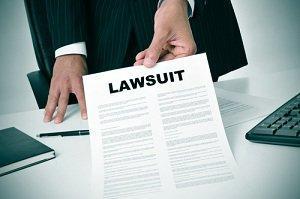Defending Against Employment Discrimination Lawsuits
 Illinois business owners face numerous legal hurdles, including issues related to incorporation, taxes, health insurance and concealed carry permits. However, that does not include one of the most onerous legal hurdles of all–litigation.
Illinois business owners face numerous legal hurdles, including issues related to incorporation, taxes, health insurance and concealed carry permits. However, that does not include one of the most onerous legal hurdles of all–litigation.
Business owners can be sued for a variety of reasons. Employment discrimination is one of the most common examples. If you are a business with at least 15 employees in Illinois, a public contractor or a state agency, then you could become the subject of an employment discrimination lawsuit. Specifically, the law prohibits employers from discriminating against any individual because of:
- Race or color;
- Religion;
- Sex or sexual orientation;
- National origin, ancestry, citizenship status or language;
- Age (40 and older);
- Order of protection status;
- Marital status or pregnancy;
- Physical or mental disability;
- Military status or unfavorable discharge;
- Arrest record;
- Real estate transactions;
- Access to financial credit; and
- Availability of public accommodations.
Prohibited employer actions include discrimination in hiring, promotion, pay and discharge.
Procedural Requirements
An employment discrimination suit begins when the employee files a complaint with the Illinois Department of Human Rights. The complaint must be filed within 180 days of the alleged discrimination. Note that this statute of limitations is based on when the alleged acts occurred and not on when the employee felt discriminated against. The employee cannot file a civil lawsuit in state court until receiving a right-to-sue letter from the IDHR. Once that letter has been received, the employee has 90 days to file the lawsuit. If he fails to file within that timeframe the discrimination claim is barred.
The employee may also file a complaint with the Equal Employment Opportunity Commission, which investigates employment discrimination based on federal law. (Note that he IDHR will automatically file the complaint with the EEOC upon request.) This complaint must be filed within 300 days of the alleged discrimination. After receiving a right-to-sue letter, the employee has 90 days to file the lawsuit in federal court before the claim will be barred.
Employment discrimination lawsuits can be procedurally complicated. If a complaint has been filed against you in either state or federal court, contact one of our Kane County employment law attorneys. At Law Office of James F. White, P.C. we can guide you through the process and put your mind at ease. We have experience handling unfounded employment discrimination claims for clients in Chicago and the western suburbs.





